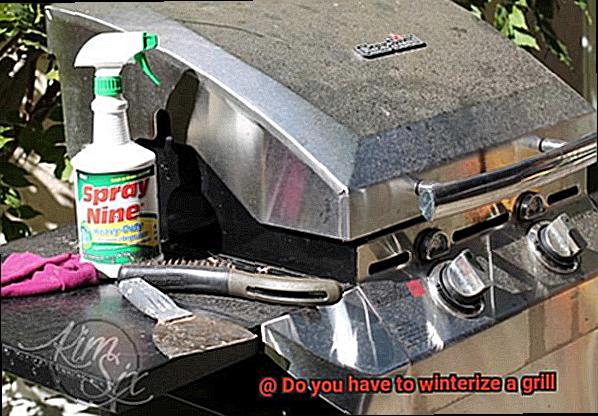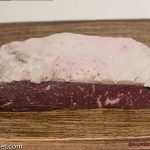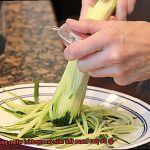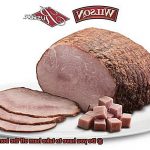Winter is just around the corner, and it’s time to prepare for the cold season by storing away all your outdoor gear. But what about your grill? As fellow grilling enthusiasts, we know that a grill is more than just a cooking tool – it’s a prized possession that deserves proper care and attention. So, do you have to winterize a grill?
Contrary to popular belief, leaving your grill exposed to the harsh winter elements can cause serious damage and shorten its lifespan. Rain, snow, and ice can seep into the internal components of your grill, leading to rusting, erosion, and other issues. That’s why it’s crucial to take steps to protect your investment.
In this blog post, we’ll delve into why it’s essential to winterize your grill and provide you with some easy tips and tricks for keeping it safe during the colder months. From cleaning and covering your grill to storing propane tanks and accessories correctly – we’ve got you covered. So sit back, relax and read on as we share our expertise on how to keep your grill in top shape throughout the year.
Contents
Benefits of Winterizing Your Grill
While it may seem like an arduous chore, the benefits of winterizing your grill far outweigh the effort it takes to do so. Let’s dive into the numerous advantages of winterizing your grill.
Firstly, winterizing your grill protects it from the brutal elements of winter. Mother nature can be harsh on your grill with snow, ice, and moisture wreaking havoc on the exterior and interior components such as burners, hoses, and valves. By taking measures such as covering your grill with a waterproof cover, you can prevent rust and corrosion which can ultimately lead to costly repairs.
Moreover, properly storing your grill during winter reduces the risk of damage caused by snow or ice accumulation. This means you’ll spend less money on repairs and replacements in the long run, saving you money. This is a double win because you get to keep more money in your pocket while also ensuring that your grill lasts longer.
Winterizing your grill also makes cleaning and maintenance a breeze. By removing all leftover food particles, grease, or debris before storing it away for the winter, you reduce the risk of unwanted pests and rodents making a home inside your grill. Come spring, cleaning will be quicker and easier to ensure you are ready to fire up the grill again without any hesitation.
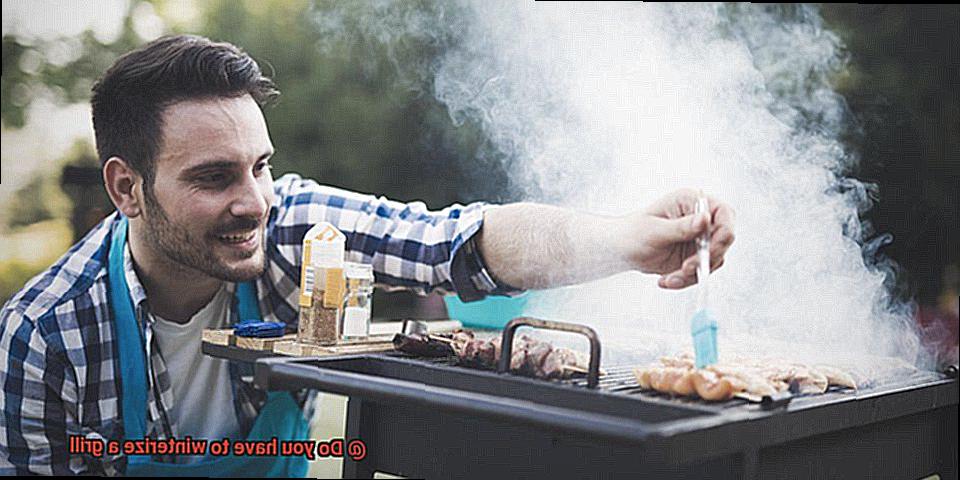
Lastly, proper winterization can improve your grill’s performance when you’re ready to use it again in the spring. By ensuring all parts are clean and dry before storage, you reduce the risk of clogs or blockages that can affect flame output or gas flow. As a result, you’ll have a more efficient and reliable grilling experience next season.
Steps to Winterize Your Grill
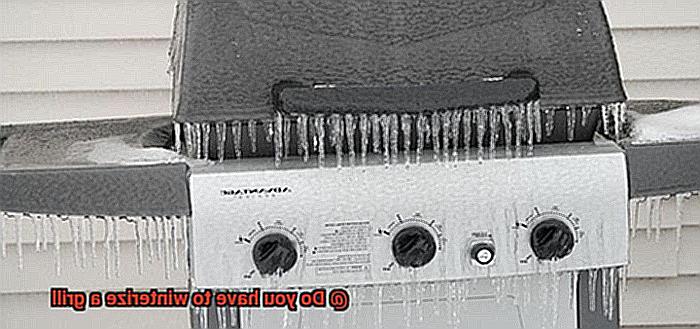
As the crisp autumn air turns to winter chill, it’s time to start thinking about how to winterize your grill. Neglecting this important task can lead to rust, corrosion, and other damage that can shorten your grill’s lifespan. But don’t worry, we’ve got you covered with these five simple steps to help protect your grill during the winter months.
Step 1: Scrub Your Grill Clean
Before doing anything else, give your grill a thorough cleaning. This means removing all leftover food debris, grease, and ashes. Grab a grill brush to scrape off any stubborn grime, and then wipe everything down with warm soapy water. It’s crucial to dry the grill completely before proceeding to the next step.
Step 2: Cover It Up
Once your grill is clean and dry, it’s time to cover it up. A sturdy cover will protect your grill from snow, rain, and other harsh weather conditions. Ensure that the cover fits snugly over the grill without any gaps where moisture could seep in.
Step 3: Disconnect Your Propane Tank
For gas grills, disconnecting the propane tank is a must before storing for the winter. Turn off the gas supply at the tank and remove it from the grill. Store it in a cool, dry place away from any heat sources.
Step 4: Store It Indoors
The best place to store your grill during the winter is indoors. If you have a garage or storage shed, that’s ideal. If not, try to find a spot on your patio or porch that’s protected from the elements as much as possible.
Step 5: Inspect for Damage
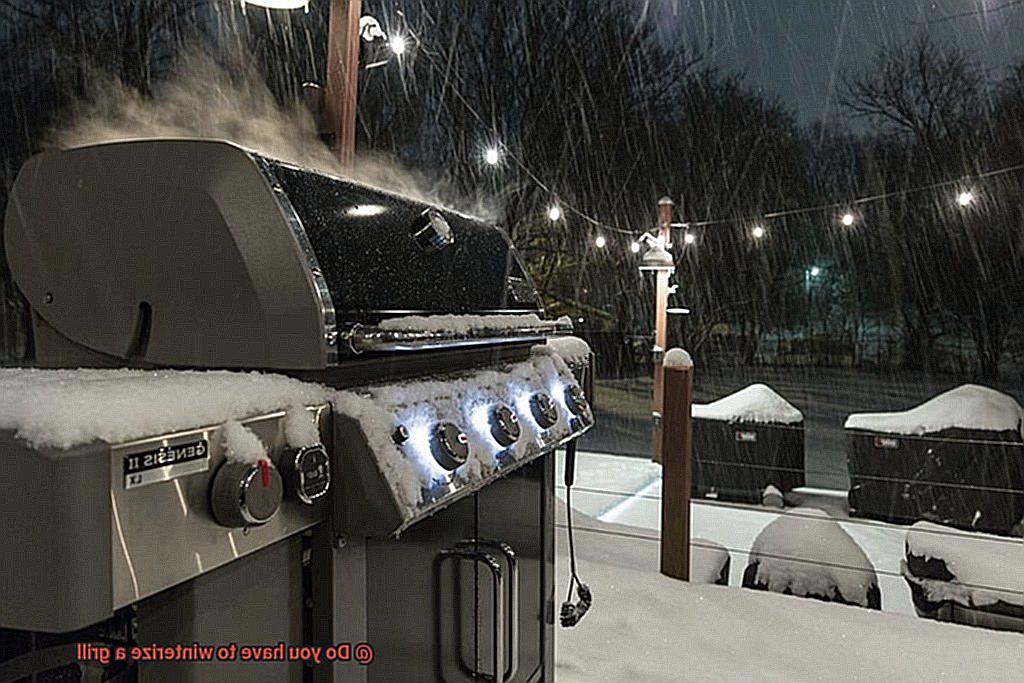
Before putting your grill away for the winter, take a few minutes to inspect it for any signs of damage or wear and tear. Look for rust, cracks, or other issues that could worsen over time. If you notice anything concerning, it’s best to address it now rather than waiting until next grilling season.
Cleaning the Grill
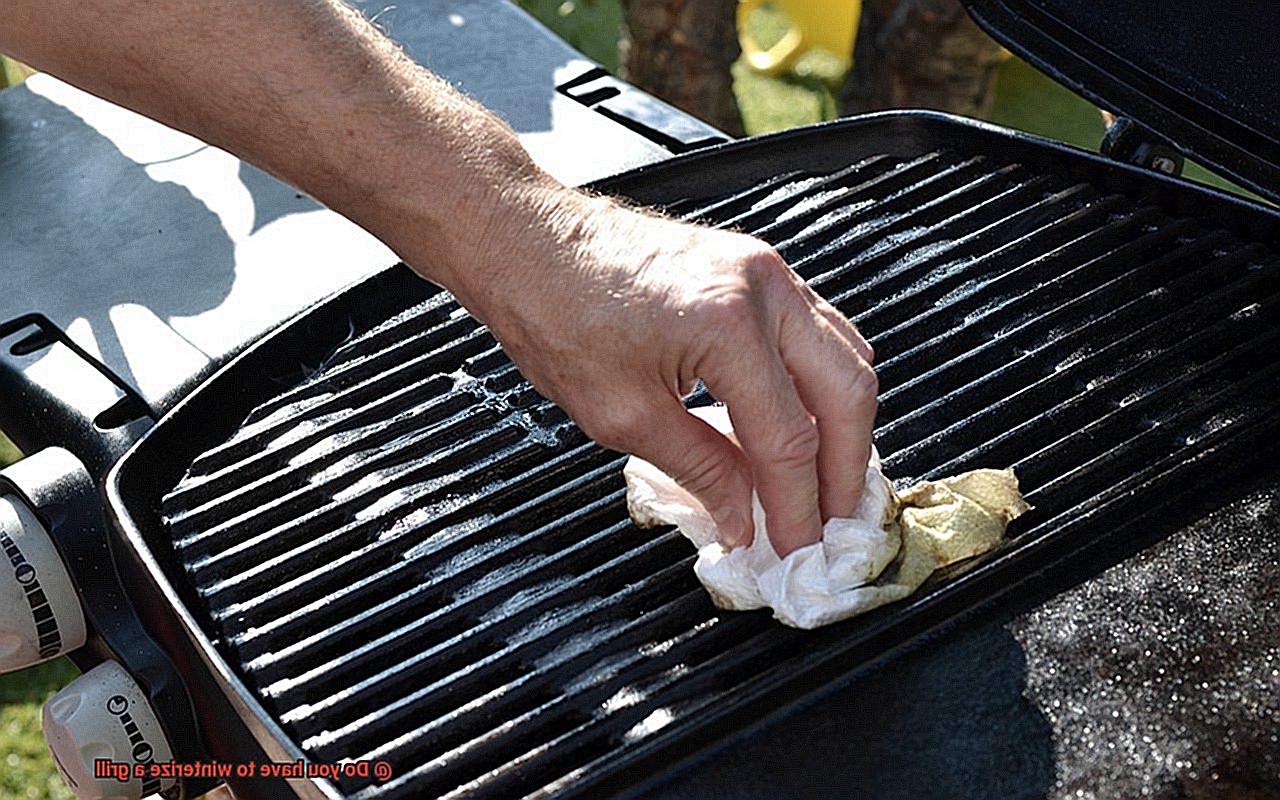
Before you pack away your trusty grill, make sure to give it some much-needed TLC. Cleaning your grill is an essential step in maintaining its lifespan and preventing any potential health hazards from leftover food particles. Here’s how to clean your grill before winterizing it:
- Remove the grates: Start by removing the grates from your grill and giving them a good scrub with a wire brush. This will eliminate any excess debris or residue from previous grilling sessions.
- Clean the inside: Next, use warm soapy water and a sponge to clean every nook and cranny of your grill’s interior. Be sure to pay close attention to any hard-to-reach areas where grease and grime may have accumulated.
- Rinse thoroughly: Once you’ve finished cleaning the inside of your grill, rinse it thoroughly with a hose or bucket of water. Avoid getting water on the burners or igniters as this can cause damage to your grill.
- Wipe down the exterior: Give the outside of your grill a good wipe down with a damp cloth or sponge. This will remove any dirt or grime that may have accumulated on the exterior of your grill.
Covering the Grill
Winter is just around the corner, and as the colder months approach, it’s time to start thinking about winterizing your beloved grill. One essential step in this process is covering your grill. Not only does it protect it from the harsh winter conditions, but it also ensures that your grill remains in excellent condition for years to come.
Covering your grill is crucial in protecting it from moisture, which can lead to rust and corrosion. The accumulation of debris like leaves and snow on the grill’s surface can also cause damage. Therefore, covering your grill prevents debris from accumulating on its surfaces.
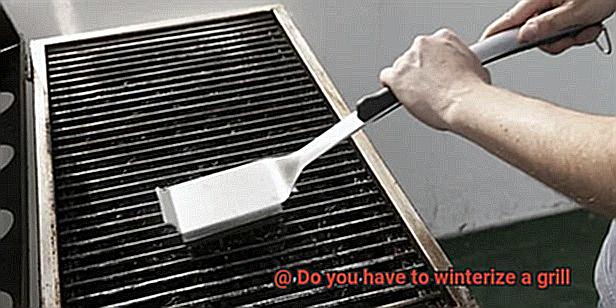
When it comes to covering your grill, you have various options to choose from. The most common covers are made of durable and weather-resistant materials like vinyl or polyester. These covers come in different sizes to fit different grill models and can be secured with straps or ties to prevent them from flying away during windy conditions.
Before covering your grill, ensure that you clean it thoroughly. A dirty grill can attract rodents and other pests that can damage the grill’s interior components. Therefore, make sure there is no grease, food residue, or debris left on its surfaces.
Another essential factor to consider before covering the grill is ensuring that it is completely dry. Any moisture left on the grill’s surfaces can cause rust and corrosion over time. To prevent this, let the grill air-dry for a few hours before covering it.
To summarize, covering your grill is an important step in winterizing it. A good-quality cover made of durable materials will protect your grill from moisture and debris, keeping it in excellent condition for years to come. Here are some additional tips to consider when covering your grill:
- Always ensure that you clean and dry your grill thoroughly before covering it.
- Choose a cover made of durable and weather-resistant materials like vinyl or polyester.
- Secure the cover with straps or ties to prevent them from flying away during windy conditions.
- Remove the cover occasionally to let the grill air out and prevent the accumulation of moisture.
Disconnecting Propane Tank or Gas Supply
As the winter approaches, it’s time to start thinking about winterizing your grill. One of the most critical steps in this process is disconnecting your propane tank or gas supply. This is especially important if you live in an area where temperatures drop below freezing during the winter months. If you leave your grill connected to the propane tank or gas supply, it can cause damage to the grill’s components, such as the regulator and hoses, due to the contraction of gas lines in colder temperatures.
To properly disconnect your propane tank or gas supply, you need to follow a few simple steps. First, turn off the burners and shut off the gas supply at the tank or natural gas line to prevent any gas from leaking out and causing a potential hazard. Next, unscrew the regulator from the propane tank or gas line and gently remove it from the grill. Be sure to inspect the regulator and hoses for any signs of wear or damage before storing them away for the winter.
It’s important to note that if you have a natural gas grill, you will need to consult a professional to properly disconnect and winterize your grill due to safety concerns. Natural gas grills require a licensed plumber or gas technician to ensure that everything is done correctly.
Aside from disconnecting your propane tank or gas supply, it’s also recommended to clean your grill thoroughly before storing it away for the winter. This includes removing any leftover food particles, grease, and debris from both the grates and interior of the grill. Doing so will prevent any buildup that can attract insects or rodents during the offseason.
To summarize, here are some key takeaways:
- Disconnecting your propane tank or gas supply is an essential step in properly winterizing your grill.
- Turn off burners and shut off gas supply at the tank or natural gas line to prevent any hazards.
- Inspect regulator and hoses for any signs of wear or damage before storing them away for winter.
- If you have a natural gas grill, consult a professional for proper disconnection and winterization.
- Clean your grill thoroughly to prevent any buildup that can attract insects or rodents during the offseason.
Investing in Accessories for Protection
One of the most effective ways to achieve this is by investing in accessories for protection. From grill covers to chimney starters, there are several accessories available in the market that can help protect your grill from harsh winter conditions such as snow, ice, and freezing temperatures.
A high-quality grill cover is an indispensable accessory when it comes to winterizing your grill. It shields your grill from snow, ice, and moisture, which can cause rust and damage to the grill’s interior components. But it’s crucial to choose a cover that fits your specific grill model and is made of durable, weather-resistant material.
Another essential accessory for grill protection is a set of grill grates. These grates are designed to fit over your existing grates, providing an extra layer of protection against rust and corrosion. They also make cleaning easier after winter storage by preventing food particles from getting stuck on the grates.
Investing in a chimney starter can help you get your grill up and running faster during colder months. This tool quickly and efficiently starts charcoal or wood pellets while reducing the need for lighter fluid, which can negatively impact the flavor of your food.
Lastly, investing in a set of grill brushes and cleaning tools is essential when it comes to protecting your grill. These tools allow you to clean your grill thoroughly before storing it for the winter, removing any food particles or debris that may have accumulated on or inside the grill.
Proper Storage for Long-Term Protection
Here are the steps you should take for long-term protection:
First, clean your grill thoroughly. Remove any leftover grease or food particles from the grates and burners with a wire brush, then wash with warm soapy water.
Next, dry the grill completely to prevent rust from forming. Wipe down the grates and burners with a towel and leave the grill out in the sun for a few hours to air dry.
Cover your grill with a high-quality cover that fits snugly to prevent moisture and debris from getting inside. If you live in an area with harsh winters or heavy snowfall, consider storing your grill inside a garage or shed for extra protection.
Disconnect the propane tank from the grill and store it separately in a cool, dry place. Remember to turn off the gas valve and wrap a plastic bag around the regulator to prevent moisture from getting inside.
Finally, perform a thorough inspection before using your grill again in the spring. Replace any damaged parts and ensure everything is in working order.
kfygCaNw3pw” >
Conclusion
In conclusion, winterizing your grill is a vital step in safeguarding your investment and ensuring its longevity. Exposing your grill to the harsh elements of winter can cause rusting, erosion, and other issues that can ultimately shorten its lifespan. To prevent damage caused by snow or ice accumulation, it’s crucial to take steps to protect your grill.
This includes cleaning it thoroughly, covering it with a waterproof cover, disconnecting the propane tank or gas supply, investing in accessories for protection, and storing it properly indoors or in a protected area.
Winterizing your grill also makes maintenance easier when you’re ready to use it again in the spring. By removing all leftover food particles, grease, or debris before storing it away for the winter, you reduce the risk of unwanted pests and rodents making a home inside your grill. When grilling season rolls around again come springtime, cleaning will be quicker and easier so you can fire up the grill without any hesitation.
Investing time and effort into winterizing your grill may seem like an arduous chore but trust us when we say that the benefits far outweigh the effort. You’ll have peace of mind knowing that your prized possession is protected from harsh winter conditions while also ensuring that it performs at its best when grilling season rolls around again.

